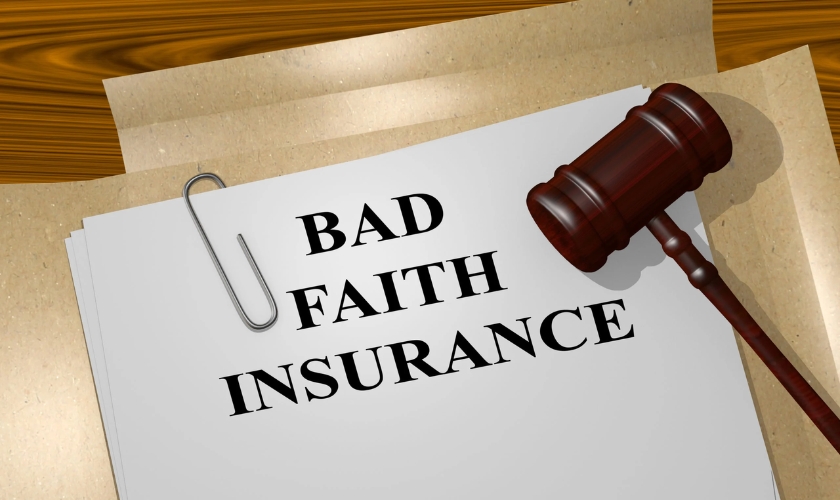
Working with an insurance firm is seldom pleasant. When paying your premiums for decades, you depend on your insurer to have your back when you experience an accident or loss. However, if they stall, deny your claim unjustly, or mislead you about what your coverage does, you might be facing a bad-faith insurance claim.
The challenge is that such cases can unravel fast if you do something stupid. Over the years, I have had clients lose bargaining power not because their case was bad but because they did not know what evidence to gather or when to stand firm. Let us run through the most frequent pitfalls and, more importantly, how to avoid them.
Our Springfield Bad Faith Insurance Lawyers have handled numerous cases at Rah Law. We know insurers’ tactics to construct a solid case against them.
Key Pitfalls That Weaken Insurance Claims
Failing to Keep Detailed Records
Your best defense in a bad-faith lawsuit is documentation. Insurers are banking on individuals not keeping records. Retaining emails, phone records, letters, medical bills, and repair estimates is crucial—anything related to your claim.
How to document misrepresentations or delays:
Create a timeline of all dealings with your insurer. Record the time and what each said if they provide contradictory information. This type of information counts when it comes to proving tactics of delay or dishonesty regarding policy conditions.
Settling Too Quickly
When an insurer pushes money on you quickly, taking it and leaving is easy. But if it doesn’t match what you must pay, you’ve just forfeited your right to reasonable payment.
Catching a lowball settlement:
Look at the offer against your actual damages, such as repair estimates, medical reports, or independent appraisals. If their figure falls far short, it’s a good indication of bad faith.
Neglecting an Insurer’s Obligation to Investigate
One of the fundamental responsibilities of the insurer is to investigate your claim impartially and in a timely fashion. If they fail to do so, that is a cause for alarm.
How to proceed when they don’t investigate:
If weeks pass with no response, or if they reject your claim without investigating, record each unanswered email and phone call. Courts frequently view a failure to investigate as proof of bad faith.
Not Catching Misrepresentation
At times, insurers misrepresent what your coverage actually includes. You lose benefits you’ve paid for if you don’t speak up.
How to establish misrepresentation:
Compare your written policy with what the adjuster said. If the two don’t match, copy both sets of information. That side-by-side comparison can reveal dishonest practices.
Waiting Too Long to Get Help
One error I find far too common is individuals waiting until they are drained before contacting an attorney. The more time you take, the more challenging it is to collect evidence. Getting counsel early on will keep your case intact and prevent insurers from exploiting you.
Choosing Springfield Lawyers who handle Bad Faith Insurance can save you time and anxiety.
Evidence That Makes or Breaks a Case
The validity of your claim is built on what you can substantiate. Helpful evidence typically consists of:
- Communication history: Emails, call records, and letters that bring out delays or inconsistencies.
- Expert statements: Independent adjusters, physicians, or contractors can demonstrate where the insurer failed.
- Third-party claims: When others are mistreated in similar circumstances, it indicates a pattern.
- Policy limits: If your insurer hides this information, it’s another instance of bad faith conduct.
Identifying Delay Tactics
The most frequent tactic is deliberate delay. If you don’t write it, it’s your word against theirs.
How to demonstrate deliberate delay:
Maintain a record of missed deadlines or reasons that do not coincide with your policy conditions. Repeated delay usually indicates purposeful misconduct.
What Happens After You Prove Bad Faith
So what do you do after you determine that your insurer behaved unreasonably? Legal avenues can involve suing for damages above your initial claim. That could mean negotiations with the lawyers for the insurance company or going to trial if they won’t settle fairly.
A Personal Injury Lawyer Near 65806 can explain every step so you don’t have to guess what’s next.
Intimidation and Rudeness Count Too
It’s not merely paper shuffling that counts. Take notes if your adjuster becomes hostile, condescending, or attempts to bully you. Written-on-record unprofessionalism can strengthen your case because it establishes a pattern of unfairness.
Such as refusing claims without investigating, making extremely low offers compared to what’s reasonable, lying about coverage, or pushing payments unnecessarily.
Request the denial in writing, compare it to your policy, and keep all documents. If the denial doesn’t align with the policy terms, speak with an attorney.
Experts bring credibility. For instance, a contractor can provide the actual cost of repairs, or a physician can demonstrate medical necessity. Their expert testimony is well-received in court.
Standing Strong Against Insurance Companies
Insurance companies know how to defend their bottom line. They might employ delay, misrepresentation, or lowball offers to exhaust you. But if you can bypass the common pitfalls we’ve discussed, you’ll safeguard your claim and your rights.
At Rah Law, our Springfield Bad Faith Insurance Lawyers understand these strategies. We can assist you in fighting for the treatment and compensation you are entitled to.





